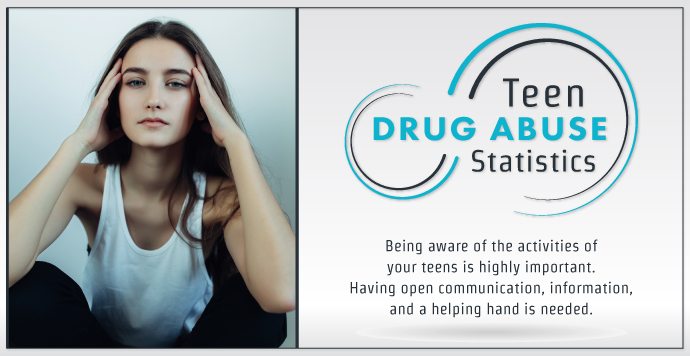The Importance of Screening for Substance Use in Adolescents
Parents play a critical role in their children’s lives. As their children grow to pre-teens and teens, parents worry about new risks they may experience. One such risk is the use of substances, such as alcohol, marijuana, tobacco, and other drugs. Parents can help by talking to their teen’s pediatrician about screening for substance use.
Substance use by teens can have a big impact on their health and well-being. The American Academy of Pediatrics (AAP), through a cooperative agreement with the Centers for Disease Control and Prevention (CDC), developed a guide for implementing substance use screening in pediatric practices to help pediatricians address substance use concerns. The AAP recommends screening for substance use in children, starting at 9 years of age.
How Does Screening Work?
The process of screening for substance use typically starts with a questionnaire that covers several areas, such as family history of substance abuse, personal history of drug experimentation, and current peer influence. From there, the AAP recommends that pediatricians conduct a brief intervention with parents and teens if any red flags are raised. This usually takes the form of a 10-15 minute conversation about the risks associated with substance abuse and ways to prevent it. For example, the conversation might cover topics such as smoking cigarettes, drinking alcohol underage, or using illegal drugs.
Why Is Screening Important?
Unfortunately, many adolescents who need help don’t get it because their parents are reluctant to talk about drug use or they don’t think their child is at risk. Screening can help identify those who are at risk so they can get the help they need before their substance use becomes problematic. Additionally, parents who participate in screenings are more likely to talk to their teens about drug prevention.
Substance abuse is a serious problem among adolescents, but it’s one that can be prevented with early intervention. Parents play a pivotal role in prevention by talking to their teen’s pediatrician about screening for substance use. Screening helps identify those at risk so they can get the help they need before their substance use becomes problematic. By working together, we can help keep our teens healthy and safe.
The Problem of Substance Use Among Teens
It’s no secret that substance use is a problem among adolescents. Alcohol, marijuana, and tobacco are the most commonly used substances, and by 12th grade, about two-thirds of students have tried alcohol.1 But the problem doesn’t stop there. About half of 9th through 12th grade students reported ever having used marijuana, and close to 4 in 10 reported having tried cigarettes.3 Additionally, among 12th graders, close to 2 in 10 reported using prescription medicine without a prescription.1
Although it is illegal for people under 21 years of age to drink alcohol, the findings show that people from 12 to 20 years of age consume about one-tenth of all alcohol consumed in the United States. This is a serious problem with potentially lifelong consequences. If you or someone you know is struggling with substance abuse, get help today.
The Dangers of Substance Abuse
Substance abuse can lead to a number of problems, both in the short and long term. Short-term effects can include impaired judgment, trouble concentrating, slurred speech, and difficulty walking. Long-term effects can include liver disease, cancer, lung disease, and brain damage. Substance abuse can also lead to accidents, violence, and risky behavior that can put yourself and others in danger.

Substance abuse is a serious problem among adolescents in the United States. Alcohol, marijuana, and tobacco are the most commonly used substances, and their use can lead to a number of short- and long-term problems. If you or someone you know is struggling with substance abuse, get help today by calling today at 816.819.5166 or scheduling your appointment online. Treatment options are available to help you overcome addiction and get back on track.
Risks of Substance Use for Teens
Many teens experiment with substances, such as alcohol, tobacco, and drugs. While some are able to use these substances without developing any problems, others develop serious health problems that can be long-lasting or even life-threatening. In fact, the risks of substance use are especially high for teens. This is because their brains are still developing and they are more likely to engage in other risky behaviors.

Some of the risks of substance use for teens include the following:
Affecting the growth and development of teens, especially brain development.
Occurring more frequently with other risky behaviors, such as unprotected sex and dangerous driving.
Contributing to the development of adult health problems, such as heart disease, high blood pressure, and sleep disorders.
The earlier teens start using substances, the greater their chances of continuing to use substances and developing substance use problems later in life. When teens begin drinking at an early age, they increase the chance of becoming addicted to or continuing to abuse substances later in life.
Given these risks, it’s important for parents and guardians to talk with their teens about substance use before it becomes a problem. Here are some tips for starting the conversation:
Be honest about your own experiences with substances. If you have used substances in the past, share your experience in a nonjudgmental way. This will help your teen feel comfortable talking with you about their own experiences.
It’s okay to not have all the answers. If you don’t know how to respond to something your teen tells you, it’s okay to say so. You can also offer to get more information together or look up resources that can help.
Avoid lecturing or shaming your teen. This will only make them defensive and less likely to talk with you in the future. Instead, try to have an open and honest conversation where you both listen and share your thoughts and feelings.
Having an open dialogue with your teen about substance use can help prevent serious health problems down the road. Be honest about your own experiences, avoid lecturing or shaming your teen, and offer resources if needed. By starting the conversation early, you can help reduce the risks of substance use among teens.












